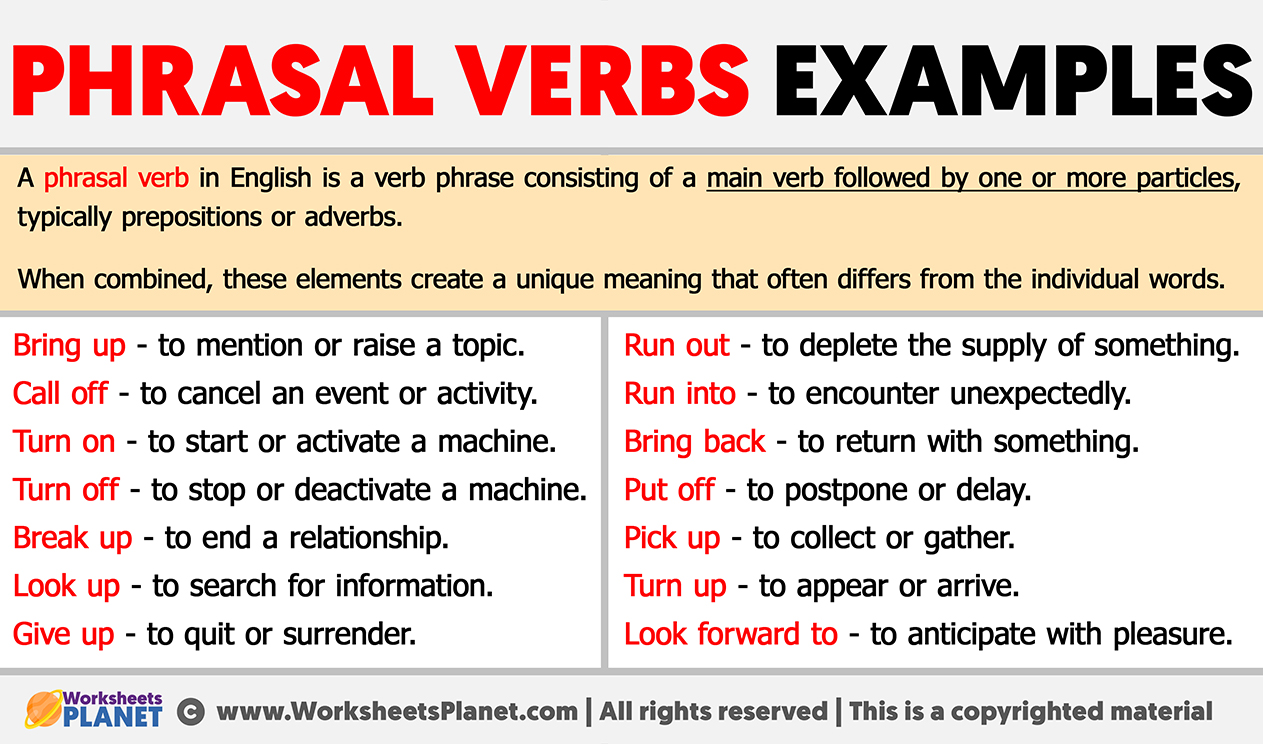A phrasal verb in English is a verb phrase consisting of a main verb followed by one or more particles, typically prepositions or adverbs. When combined, these elements create a unique meaning that often differs from the individual words.

List of 40 phrasal verbs examples
- Bring up – to mention or raise a topic.
- Call off – to cancel an event or activity.
- Turn on – to start or activate a machine.
- Turn off – to stop or deactivate a machine.
- Look after – to take care of someone or something.
- Look up – to search for information.
- Give up – to quit or surrender.
- Give in – to yield or submit.
- Break down – to stop working (machinery) or to lose control of emotions.
- Break up – to end a relationship.
- Run out – to deplete the supply of something.
- Run into – to encounter unexpectedly.
- Bring back – to return with something.
- Put off – to postpone or delay.
- Pick up – to collect or gather.
- Take off – to remove or become successful quickly.
- Turn up – to appear or arrive.
- Look forward to – to anticipate with pleasure.
- Set up – to establish or arrange.
- Make up – to invent or reconcile.
- Give away – to give something for free.
- Get over – to recover from an illness or emotional shock.
- Come across – to find or meet by chance.
- Turn down – to refuse an offer or request.
- Put on – to wear clothing or to pretend.
- Look out – to be cautious or vigilant.
- Take after – to resemble a family member.
- Run away – to escape from a place or situation.
- Put up with – to tolerate or endure.
- Break into – to enter a building illegally.
- Carry on – to continue an activity.
- Give in to – to yield to a temptation or pressure.
- Cut off – to disconnect or isolate.
- Turn around – to reverse direction or improve.
- Get along with – to have a good relationship with.
- Look up to – to admire or respect someone.
- Hold on – to wait or grasp tightly.
- Take on – to accept responsibility or a challenge.
- Show up – to appear or arrive.
- Show off – to display skills or possessions for attention.

